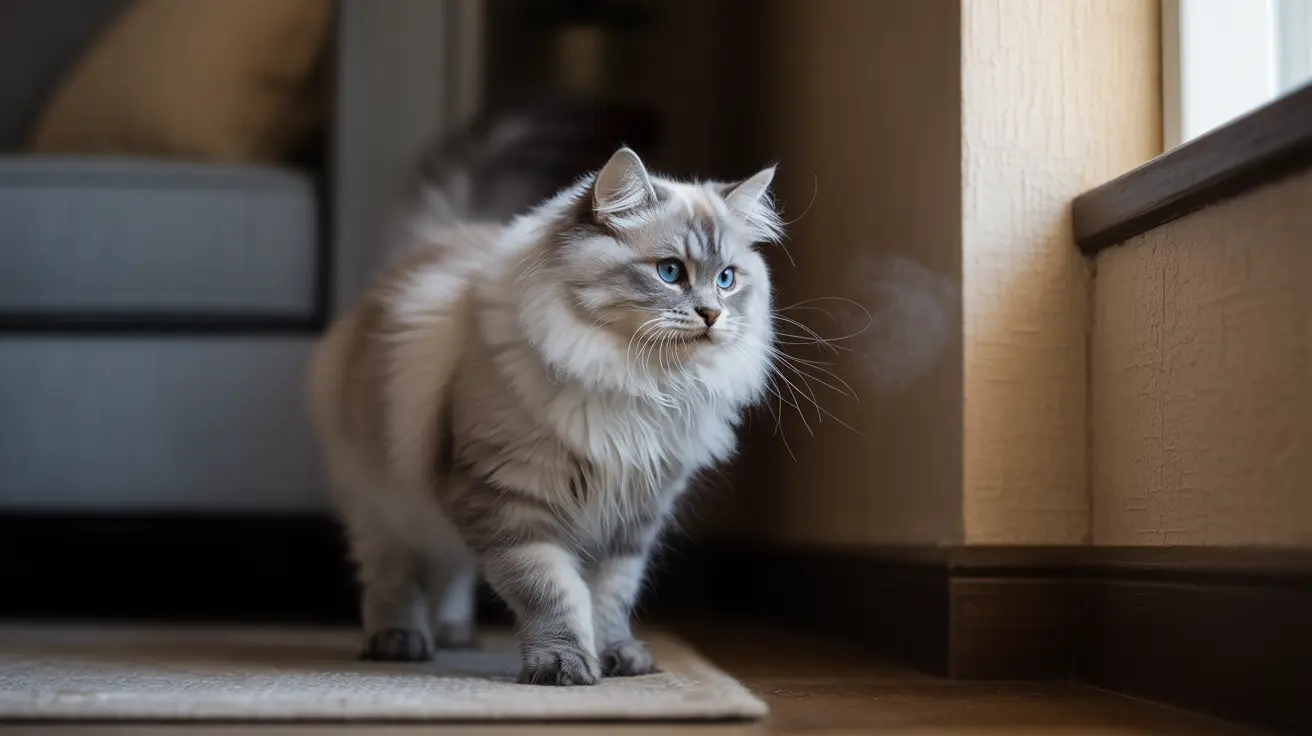When a female cat suddenly starts spraying, it can be both concerning and frustrating for pet owners. This unexpected behavior change often signals underlying issues that require attention. Understanding why female cats spray and how to address this behavior is crucial for maintaining both your cat's health and your home's cleanliness.
While spraying is more commonly associated with male cats, female cats can and do spray for various reasons. This comprehensive guide will help you understand the potential causes and find effective solutions for your female cat's sudden spraying behavior.
Medical Causes: Your First Priority
Before assuming behavioral reasons, it's essential to rule out medical conditions. Female cats may begin spraying due to various health issues, including:
- Urinary tract infections
- Bladder stones or crystals
- Kidney disease
- Arthritis affecting litter box access
- Hormonal imbalances
A veterinary examination is crucial when spraying behavior suddenly appears, as early detection and treatment of medical issues can prevent the behavior from becoming habitual.
Stress and Environmental Triggers
Female cats are particularly sensitive to environmental changes, which can trigger spraying behavior. Common stress factors include:
- Moving to a new home
- Renovation or furniture rearrangement
- New pets or family members
- Changes in daily routine
- Presence of outdoor cats near windows
Managing these environmental factors often plays a crucial role in stopping the spraying behavior.
Territory and Social Dynamics
Female cats may spray to mark their territory, especially in multi-cat households. This behavior can be triggered by:
- Competition for resources
- Social tension between cats
- New cats in the neighborhood
- Limited access to preferred areas
- Changes in the social hierarchy
Providing adequate resources and space for each cat can help reduce territorial marking.
The Impact of Reproductive Status
Unspayed females are more likely to spray, particularly during heat cycles. However, even spayed females may spray if:
- There's residual ovarian tissue after spaying
- They developed the habit before being spayed
- They're responding to intact cats in the vicinity
Creating a Stress-Free Environment
To help prevent and manage spraying behavior:
- Maintain consistent daily routines
- Provide multiple litter boxes in quiet locations
- Use pheromone diffusers to create a calming environment
- Ensure each cat has their own resources
- Create vertical spaces and hiding spots
Frequently Asked Questions
Why is my female cat suddenly spraying indoors even though she has never done it before?
Sudden spraying often indicates a significant change in your cat's physical or emotional well-being. This could be due to medical issues, stress, or environmental changes. Always start with a veterinary check-up to rule out health problems.
Could my female cat's spraying be caused by a medical issue like a urinary tract infection or pain?
Yes, medical issues are a common cause of sudden spraying. Urinary tract infections, bladder stones, and other conditions can cause discomfort leading to spraying behavior. Immediate veterinary attention is recommended.
How can stress or changes in the household trigger sudden spraying behavior in female cats?
Cats are sensitive to environmental changes. New furniture, renovations, visitors, or changes in routine can cause stress, leading to spraying as a self-soothing behavior or territory marking response.
Does spaying completely stop spraying in female cats, or can they spray even after being spayed?
While spaying typically reduces or eliminates spraying in 90-95% of cases, some spayed females may continue to spray due to behavioral patterns, stress, or rarely, incomplete removal of ovarian tissue.
What are effective ways to stop my female cat from spraying, including litter box management and reducing territorial stress?
Effective management includes maintaining clean litter boxes, providing multiple resources in multi-cat households, using pheromone products, reducing environmental stressors, and ensuring proper veterinary care. Consistency in routine and environment is key to success.
Remember, patience and consistency are essential when addressing spraying behavior. With proper medical attention, environmental management, and stress reduction techniques, most cases of female cat spraying can be successfully resolved.






